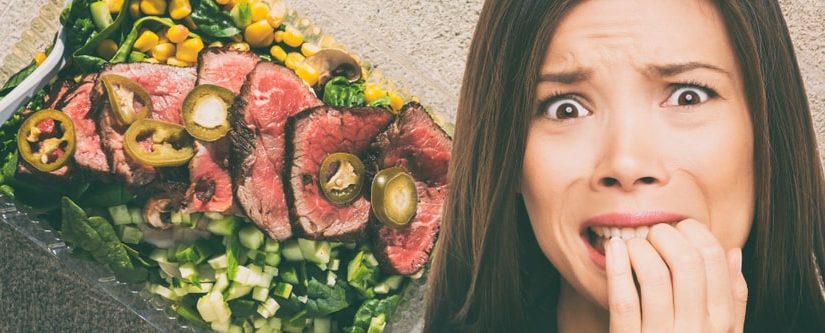6 Keto Diet Dangers
The keto diet is a popular way to lose weight by eating fewer carbs and more fat. When you do this, your body goes into a special state called ketosis, where it uses fat for energy instead of carbs. But, it’s important to know that this diet can be risky too. In this blog, you will get to know about some keto diet dangers. Before that, let’s understand what is the keto diet.
What Is The Keto Diet?
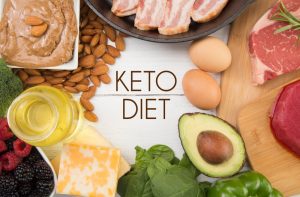
The ketogenic diet, often referred to as the keto diet, is a high-fat, low-carbohydrate eating plan designed to shift the body into a state of ketosis.
Ketosis is a metabolic state in which the body primarily burns fat for energy instead of carbohydrates.
This occurs when you significantly reduce your carbohydrate intake and replace it with fats, causing the body to produce molecules called ketones from stored fat.
Keto Diet Benefits:
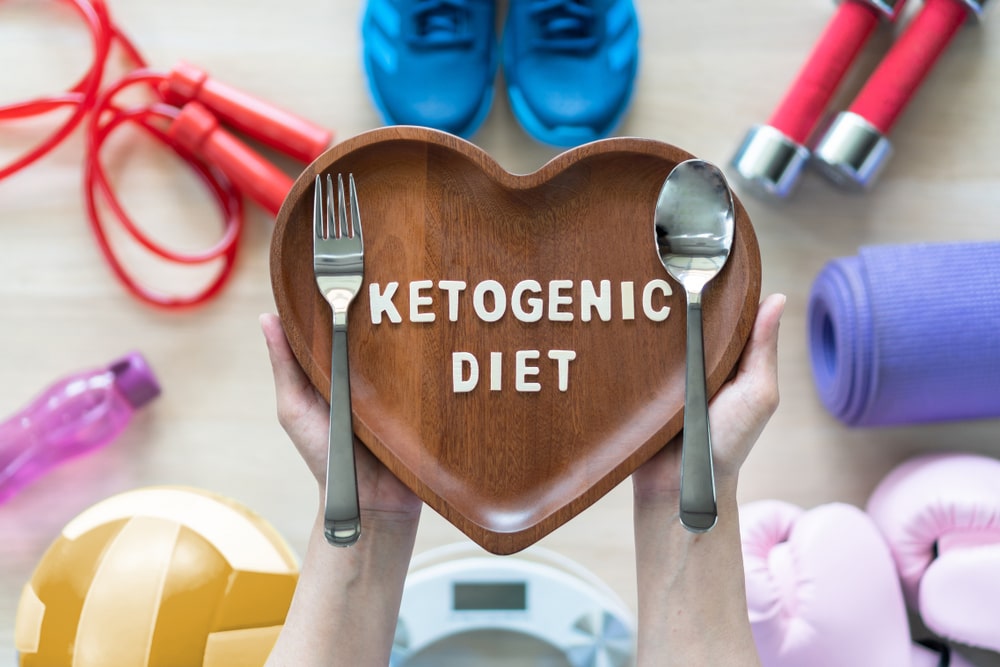
The keto diet has gained popularity for its potential health benefits. However, it’s essential to note that individual experiences can vary, and the diet may not be suitable for everyone. Here are some potential keto diet benefits:
- Improved Blood Sugar Control: Some studies have shown that the keto diet may help stabilize blood sugar levels and improve insulin sensitivity in people with type 2 diabetes or prediabetes. Reducing carbohydrate intake reduces the need for insulin and can lead to better blood sugar control.
- Weight Loss: The keto diet can be effective for weight loss because it encourages the body to burn fat for energy. When carbohydrate intake is significantly reduced, the body enters a state of ketosis, where it uses stored fat as its primary energy source. This can lead to weight loss, especially in the short term.
- Appetite Control: The high-fat and moderate-protein nature of the keto diet can help some people feel more satiated and less hungry. This can lead to reduced calorie intake, making it easier to control portions and adhere to a weight loss plan.
- Reduced Triglycerides: Many individuals on the keto diet experience a significant reduction in triglyceride levels, which is beneficial for heart health. High triglyceride levels are a risk factor for cardiovascular disease.
- Increased HDL Cholesterol: A Keto diet may cause an increased level of high-density lipoprotein (HDL) cholesterol or “good” cholesterol. Increased HDL levels may lead to a lower risk of cardiovascular problems.
6 Keto Diet Dangers You Should Be Aware of:
May cause Keto flu:

On the keto diet, you usually eat less than 50 grams of carbs per day, which can be a big change for your body. When you first start this diet, your body runs low on carbs and starts using ketones and fat for energy. This switch can make you feel like you have the flu, with symptoms like headaches, dizziness, tiredness, queasiness, and constipation.
Some of this discomfort comes from your body losing water and important minerals as it adjusts to ketosis. While most people start feeling better after a few weeks, it’s crucial to monitor these symptoms, drink enough water, and eat foods with sodium, potassium, and other electrolytes.
May lead to digestive problems and changes in gut bacteria:

So, the next point on keto diet dangers is digestive issues. Because the keto diet limits carbs, it can be tough to get enough fiber each day. Foods that are rich in fiber, like fruits with lots of carbs, starchy veggies, whole grains, and beans, are off-limits on this diet because they’re too high in carbs. As a result, the keto diet might cause tummy problems and make you constipated.
A 10-year study looked at kids with epilepsy who were on the keto diet, and 65% of them said they had constipation as a common side effect. Fiber also helps the good bacteria in your gut thrive. Having a healthy gut could boost your immune system, make your mind feel better, and lower inflammation. But a low-carb diet like keto, which is low in fiber, might not be great for your gut bacteria, although current research has mixed results on this topic.
Some foods that fit the keto diet and still have lots of fiber include flax seeds, chia seeds, coconut, broccoli, cauliflower, and leafy greens.
May give rise to nutrient deficiencies:

The keto diet limits many foods, especially nutritious ones like fruits, whole grains, and legumes. This can make it hard to get enough of the vitamins and minerals your body needs. Some studies even suggest that the keto diet falls short of providing adequate amounts of calcium, vitamin D, magnesium, and phosphorus.
One study that looked at different diets found that very low-carb diets like Atkins, which is similar to keto, only supplied enough of 12 out of the 27 essential vitamins and minerals your body needs from food.
This could lead to shortages of important nutrients over time. For instance, if you’re on a very low-carb keto diet for weight loss, experts recommend taking supplements for potassium, sodium, magnesium, calcium, omega-3 fatty acids, psyllium fiber, and vitamins B, C, and E.
Remember, whether the keto diet is nutritionally balanced or not depends on the specific foods you choose to eat. A diet filled with healthy low-carb foods like avocados, nuts, and non-starchy veggies will give you more nutrients than one based on processed meats and keto snacks. This is also the most common keto diet danger seen in people.
May damage bone health:
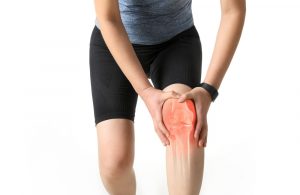
The next keto diet danger is bone damage. The keto diet can harm your bones. Research in animals suggests that the keto diet can weaken bones, possibly because it leads to a decrease in bone mineral density as your body adjusts to ketosis.
For example, a study followed 29 children with epilepsy on the keto diet for 6 months, and 68% of them had lower scores for bone mineral density after being on the diet. Another study observed 30 elite walkers, and it found that those who followed the keto diet for 3.5 weeks had higher blood markers indicating bone breakdown compared to those who ate more carbs.
May stress your kidneys:

Eating a lot of high-fat animal foods like eggs, meat, and cheese is common on the keto diet because they’re low in carbs. This can be one of the most common keto diet dangers. However, this can increase your chances of getting kidney stones. The reason is that a diet rich in animal foods can make your blood and urine more acidic, causing your body to release more calcium in your urine. Some studies also suggest that the keto diet reduces the amount of citrate in your urine. Citrate can bind to calcium and prevent kidney stones, so having less of it in your urine might raise your risk of developing stones.
If you have chronic kidney disease (CKD), it’s important to avoid the keto diet because your weakened kidneys may struggle to get rid of the excess acid caused by these animal foods. This can lead to a condition called acidosis, which can make CKD worse. People with CKD are often advised to follow lower protein diets, while the keto diet is moderate to high in protein.
May lead to hazardously low blood sugar:
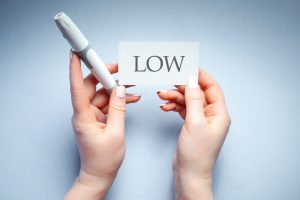
Low-carb diets like keto can help manage blood sugar in people with diabetes. Some studies even suggest that keto may lower hemoglobin A1c levels, which measure average blood sugar. However, it’s important to note that individuals with type 1 diabetes could face a higher risk of low blood sugar episodes (hypoglycemia) on this diet. Hypoglycemia can cause confusion, shakiness, fatigue, sweating, and in severe cases, coma or even death if not treated.
One study tracked 11 adults with type 1 diabetes who followed a ketogenic diet for over 2 years. They found that, on average, these individuals experienced nearly one low blood sugar event per day. People with type 1 diabetes usually experience low blood sugar when they take too much insulin and don’t consume enough carbs, so a low-carb keto diet may increase this risk. This theoretical risk could also apply to individuals with type 2 diabetes who take insulin medications.
May lead to an increased risk of chronic illnesses and early death:

Next among the keto diet dangers is its impact on the risk of chronic illnesses like heart disease or cancer is a topic of ongoing debate and remains somewhat unclear. Some evidence suggests that diets high in fat and low in carbs, especially when they rely heavily on animal foods, might have negative health consequences. Conversely, diets that prioritize plant-based sources of fats and proteins seem to offer health benefits.
A lengthy observational study involving more than 130,000 adults found that low-carb diets based on animal products were linked to higher rates of death from heart disease, cancer, and overall mortality. In contrast, low-carb diets centered around plant-based foods were associated with a lower risk of death from heart disease and overall mortality.
Another study involving over 15,000 adults reached similar conclusions but also found that both low and high-carb diets were associated with a higher risk of overall mortality compared to diets where carbs made up 50–55% of total daily calorie intake.
Key Takeaway:
Although the keto diet can offer short-term weight loss and health benefits, it could potentially result in some keto diet dangers or long-term issues such as nutrient shortages, digestive troubles, weakened bones, and more.
Given these risks, individuals with conditions like kidney disease, diabetes, heart problems, bone issues, or other medical concerns must consult their healthcare provider before attempting the keto diet.
It’s also a good idea to work with a dietitian who can help you create well-rounded meals and keep an eye on your nutrient levels while on this diet, reducing the chances of complications and nutrient deficiencies.
FAQs:
Can the keto diet cause urinary problems?
In the initial stages of the keto diet, many people experience frequent urination. This is because the body is shedding excess water along with stored carbohydrates (glycogen). As glycogen is broken down, it releases water, leading to increased urination. This is generally a temporary issue and can be seen as a sign that the body is entering ketosis.
Also, the keto diet can lead to dehydration if you don’t drink enough fluids. As the body excretes more water, it’s essential to stay adequately hydrated to prevent urinary discomfort and potential kidney stone formation.
Is the keto diet expensive?
The keto diet can be as affordable or as expensive as you make it. If you focus on whole, unprocessed foods like vegetables, eggs, chicken, and affordable sources of healthy fats like olive oil and avocados, it can be relatively budget-friendly. However, if you opt for specialty keto products, grass-fed meats, and organic produce, it can become more expensive.
How long is it safe to be in ketosis?
Ketosis is a natural metabolic state that occurs when your body primarily relies on fat for energy instead of carbohydrates. It typically occurs when you consume a very low-carbohydrate, high-fat diet, such as the ketogenic diet. Ketosis is generally considered safe for most people when done in the short term, but the duration of time it’s safe to remain in ketosis can vary from person to person.
Is keto good or bad for you?
The keto diet is effective for short-term weight loss in many people. This is primarily due to its ability to induce ketosis, which can lead to reduced appetite and increased fat burning. Also, some individuals with type 2 diabetes or prediabetes find that the keto diet helps them better manage their blood sugar levels by reducing carbohydrate intake.
Is fasting good for ketosis?
Fasting may help support ketosis, particularly in combination with a low-carb diet. Yet, one must be aware that fasting is not appropriate for every person, and some risks are linked to it, particularly if done inappropriately.
If you’re thinking about fasting to promote ketosis, it’s important to contact the concerned doctor to make sure it’s safe and suitable for your circumstances. In addition, understand the keto diet dangers to make informed selections about your dietary and fasting practices.
References:
- https://www.uchicagomedicine.org/forefront/health-and-wellness-articles/ketogenic-diet-what-are-the-risks
- https://www.ncbi.nlm.nih.gov/pmc/articles/PMC7480775/
- https://www.healthline.com/nutrition/dangers-of-keto-diet
Read Also:
- https://www.offshorecheapmeds.com/blog/what-food-causes-colorectal-cancer/
- https://www.offshorecheapmeds.com/blog/natural-remedies-for-common-ailments/
- https://www.offshorecheapmeds.com/blog/7-natural-foods-to-cure-erectile-dysfunction/
- https://www.offshorecheapmeds.com/blog/what-food-reduces-blood-sugar/

